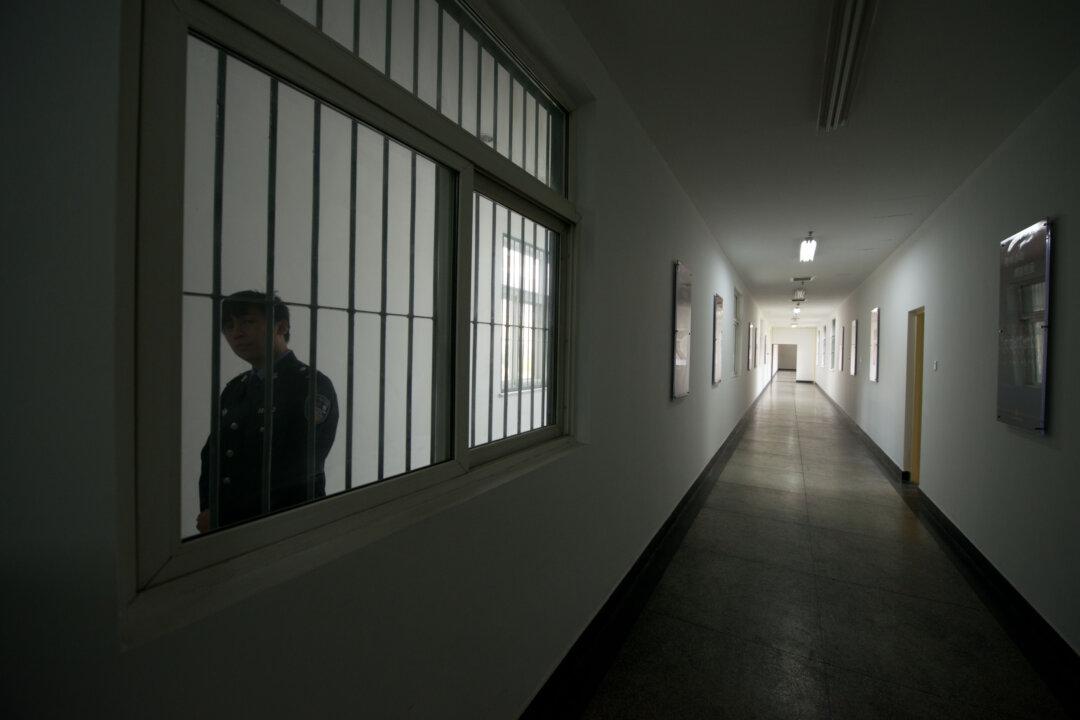A Wisconsin-based tool company is being sued for allegedly relying on forced labor in a Chinese prison to make work gloves.
A former Chinese prisoner filed a lawsuit in the Eastern District of Wisconsin on June 27, accusing Milwaukee Tool and its Hong Kong-based parent company, Techtronic Industries, of violating the U.S. Trafficking Victim Protection Act.
The former prisoner explained in his complaint that he filed under a pseudonym, Xu Lun, because he lives in China and “fears for his safety if his identity is revealed.”
Mr. Xu said he was an advocate for vulnerable groups in China, such as those living with HIV and AIDS and people with disabilities, before he was arrested on July 22, 2019.
About two years later, Mr. Xu was convicted of “subversion of state power”—a charge “commonly used by the [People’s Republic of China] government to target activists and human rights campaigners”—and was sentenced to five years in prison, according to the complaint. He then served his sentence at Hunan Chishan Prison in China’s Hunan Province.
“All prisoners, criminal and political, at Chishan Prison were subjected to forced labor. The only people who were exempt were the elderly and the disabled,” the complaint reads. “The workdays were 11–13 hours long. Prisoners were allowed a 10-minute break in the morning, a 25-minute break for lunch, and a 10-minute break in the afternoon. Prisoners were only permitted one to three days off a month.”
Mr. Xu described the working conditions at the prison as poor, without proper air conditioning or heating and constant exposure to fabric dust. Prisoners were punished for refusing to work or failing to meet production quotas. The punishment included not being allowed to use the bathroom, being forced to squat for long periods, beatings, and electric shocks with electric rods, according to the complaint.
According to the complaint, prisoners were paid 10 Chinese yuan ($1.41) to 300 yuan ($42.5) per month for their labor, depending on their tasks.
Gloves
From Feb. 23, 2022, until his release on July 21, 2022, Mr. Xu alleges in the complaint that he was forced to make a variety of textile goods, including “work gloves bearing the distinct ‘Milwaukee’ logo.”“During his time working on Milwaukee Tool gloves, [Mr. Xu] was assigned to sorting fabric, thread cutting, gluing, quality control, and ironing,” the complaint reads.
Mr. Xu alleges that he could identify different models of Milwaukee Tool gloves that he was forced to make, such as demolition gloves, winter demolition gloves, performance gloves, and “Free-Flex” gloves.
The lawsuit alleges that Milwaukee Tool and Techtronic Industries had reason to know by Jan. 31, 2023, that the gloves were made with forced labor. According to the complaint, Mr. Xu’s legal counsel sent a letter to the two companies and received a reply on Feb. 14, 2023. The two companies responded by saying that they had “conducted an internal investigation and found that there was no forced labor in their supply chain,” according to the complaint.
“If Defendants were truly not aware of the use of forced labor prior to Jan. 31, 2023, they were indeed reckless in failing to detect it, given they had ample opportunity and the ability to do so,” the complaint reads.
In April, Customs and Border Protection (CBP) announced that it would detain work gloves manufactured by Shanghai Select Safety Products Co. and its two Chinese subsidiaries. The agency explained that its decision was “based on information that reasonably indicates the use of convict labor.” CBP didn’t name Milwaukee Tool or any other U.S. firms in connection with the Chinese suppliers.
Mr. Xu alleged that Shanghai Select was the customer that had placed the order for the Milwaukee Tool gloves from Chishan Prison. The complaint alleges further that Shanghai Select had sent representatives to the prison to “monitor production and conduct quality control.”
“That Defendants’ gloves were made with forced prison labor at Chishan Prison has been all but confirmed by the U.S. government,” the complaint reads, referencing CBP’s April decision.
According to the complaint, Mr. Xu asked for a jury trial and sought unpaid wages and other damages, including damages “for the mental anguish and pain and suffering [he] experienced as a result of being forced to labor against his will.”
In response to an email inquiry from The Epoch Times, Milwaukee Tool stated that it can’t comment on active litigation and that the company takes allegations of forced labor seriously.
“As we have previously stated, despite rigorous investigations, Milwaukee Tool has found no evidence of forced labor in the production of our gloves,” Milwaukee Tool spokesperson Heather McGee said.
“Our commitment to transparency and accountability is underscored by multiple independent third-party and internal audits, none of which found any indication of such practices. Milwaukee Tool considers the claim without merit and the accusations will be vigorously defended.”







